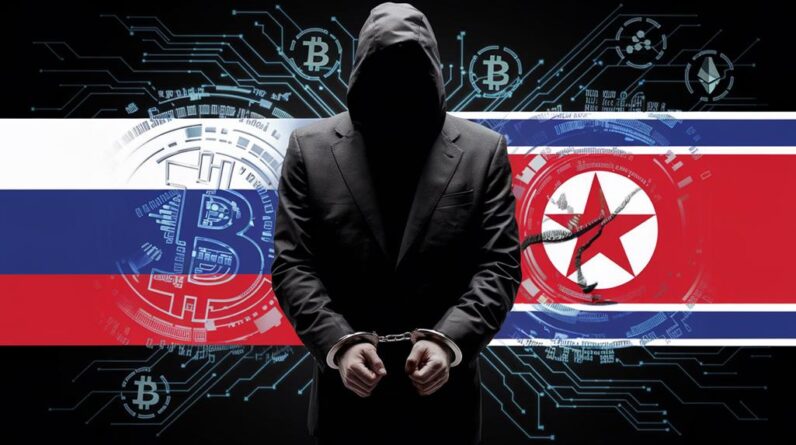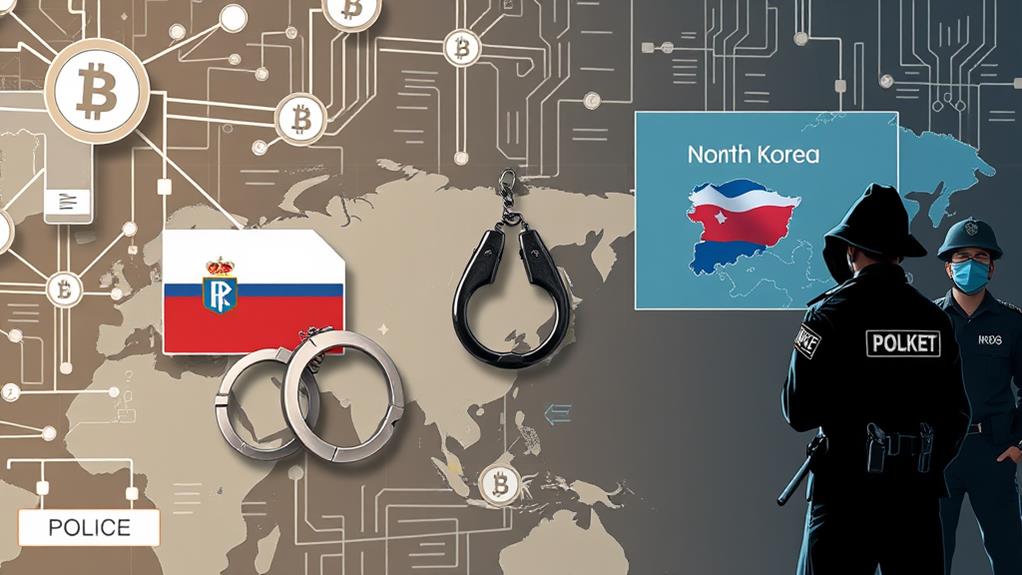
A Russian national has been arrested in Argentina for his involvement in a multimillion-dollar cryptocurrency laundering scheme connected to North Korea's notorious Lazarus Group. The complex network, which laundered significant sums through sophisticated cryptocurrency transactions, underscores the urgent need for enhanced global regulations and international cooperation to combat such cybercrimes. Financial institutions are increasingly targeted by state-sponsored groups, exploiting regulatory gaps and technology vulnerabilities. This case highlights the importance of advanced monitoring systems and robust cybersecurity frameworks. Learn how this arrest could influence future cybersecurity measures and international financial regulations.
Table of Contents
Details of the Operation

The recent arrest of a Russian national in connection with a multimillion-dollar laundering scheme in Argentina marks a critical breakthrough in the fight against financial crimes. The meticulous investigation leveraged advanced arrest techniques to dismantle a complex network tied to the North Korean Lazarus Group. Authorities uncovered sophisticated laundering methods involving significant cryptocurrency transactions linked to illicit activities. This operation's success underscores the effectiveness of precise investigation strategies and the importance of global vigilance against financial malfeasance. The complexity of the laundering network has raised global concerns, demonstrating the urgency for enhanced international cooperation to combat similar threats. The arrest signifies a crucial step towards safeguarding financial systems and upholding the principles of transparency and freedom.
Global Market Implications
With the culmination of the intricate investigation and subsequent arrest, attention now shifts to the broader ramifications for global cryptocurrency markets. The incident underscores the urgent need for enhanced cryptocurrency regulations and international cooperation to safeguard financial systems from illicit activities. Key implications include:
- Regulatory Frameworks: Strengthened laws to mitigate misuse of digital assets.
- Market Confidence: Enhanced trust in cryptocurrency markets through robust oversight.
- Technological Advancements: Development of advanced monitoring systems to detect and prevent fraud.
- Global Collaboration: Increased international cooperation to combat cross-border cybercrime.
These developments highlight the delicate balance between fostering innovation and ensuring financial security, essential for a market that values freedom and integrity.
North Korea's Lazarus Group

Among the various cyber threats facing the global financial ecosystem, North Korea's Lazarus Group stands out due to its consistent engagement in high-profile cyberattacks and complex financial crimes. This shadowy collective, believed to be state-sponsored, has orchestrated a series of sophisticated cyber operations targeting financial institutions worldwide. The Lazarus Group's notorious tactics include hacking into cryptocurrency exchanges and executing large-scale thefts, which are then funneled into North Korea's coffers. Their involvement in the recent multimillion-dollar laundering scheme in Argentina underscores the group's ability to exploit vulnerabilities in the digital currency landscape. Their persistent and evolving cyber operations continue to pose a significant challenge to international sanctions and financial security, demanding vigilant global countermeasures.
Preventive Measures
Effective preventive measures are imperative in combating cyber threats posed by groups like the Lazarus Group. Guaranteeing the integrity and security of global financial systems requires a multifaceted approach:
- Cybersecurity Training: Regular, extensive training programs for all stakeholders to recognize and respond to cyber threats.
- Regulatory Compliance: Implementing and enforcing robust regulatory frameworks to deter illicit activities and guarantee adherence to legal standards.
- Advanced Monitoring Systems: Deploying state-of-the-art technologies to monitor and flag suspicious cryptocurrency transactions in real-time.
- International Cooperation: Facilitating seamless information sharing and coordinated actions among countries to combat cybercrime effectively.
Empowering individuals and institutions through these measures fosters a resilient digital economy, safeguarding the freedoms and financial rights of global citizens.
Key Takeaways

The arrest of the Russian crypto launderer presents several critical insights for the global financial community. It underscores the urgent necessity for robust cryptocurrency regulations to mitigate vulnerabilities in digital financial systems. The case also highlights the profound importance of cybercrime cooperation among nations, demonstrating that only through collective efforts can we effectively combat sophisticated laundering networks like those linked to North Korea's Lazarus Group. Additionally, this incident reveals the pressing need for advanced monitoring systems to detect and prevent illicit activities in real-time. Fundamentally, the global financial community must prioritize the development and enforcement of stringent regulatory frameworks and foster international collaboration to preserve the integrity and freedom of the global financial ecosystem.
Conclusion
The arrest of a Russian national involved in a multimillion-dollar cryptocurrency laundering scheme, linked to the North Korean Lazarus Group, underscores critical vulnerabilities within global cryptocurrency markets. For instance, the 2018 Coincheck hack, where $530 million in digital assets were stolen, exemplifies the severe financial risks posed by such cybercriminal activities. This incident highlights the urgent need for enhanced regulatory frameworks, advanced monitoring systems, and international cooperation to safeguard financial integrity and prevent future illicit actions.







